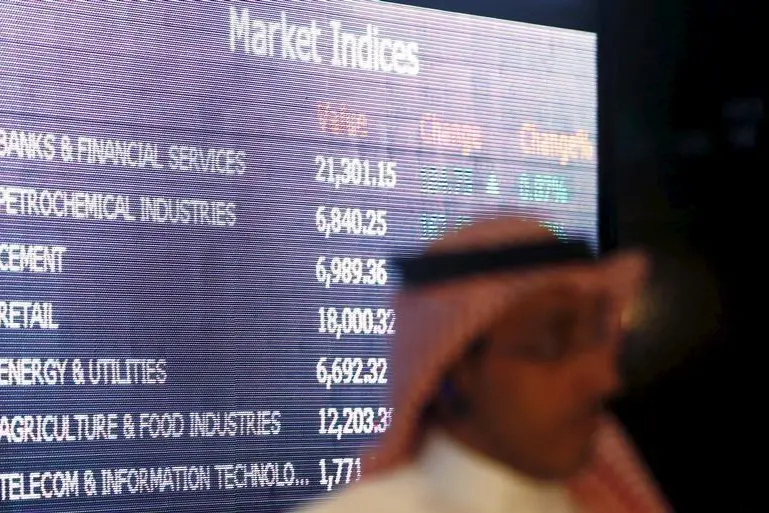PHOTO
As investors anticipate a possible upgrade of Saudi Arabia’s bourse to emerging market status by index compilers FTSE Russell and MSCI, the Riyadh market is already witnessing an inflow of foreign cash from other regional exchanges, such as Dubai and Abu Dhabi.
While MSCI will announce its result by end of June, FTSE Russell is expected to take its decision by the end of this month. (Read more here)
Investors expect a positive outcome by both index compilers and inflows into Saudi stocks began a few months ago. Approvals by both could draw tens of billions of dollars of foreign funds to the bourse within the next 18 months, according to Reuters. (Read more here).
“There are three possible outcomes for the Saudi market in June,” Robert Ansari, head of MSCI for the Middle East, told Zawya on the sidelines of MENA Investment Congress in February in Abu Dhabi.
“The first outcome is that it is announced in June that it will be included and it will be effective as of 2019,” he said.
If MSCI decides to upgrade the market, it would take effect in two phases - in May 2019 and August 2019. And it is estimated that 32 major Saudi stocks would gain emerging market status by MSCI, giving Riyadh a weight of around 2.4 percent in its index. But fund managers estimate that the listing of national oil giant Saudi Aramco would double the country’s weighting in an emerging markets index. (Read more here).
“The second outcome is that investors need to give MSCI more feedback and they may need more time to assess how well the changes required are going in practice, and it would stay on the watchlist,” Ansari said.
“If it stays on the watchlist, we’ll review it again in November 2019,” he added.
Sarah Al Suhaimi, chairperson of the Saudi stock market had said at an earlier event held by the Milken Institute in Abu Dhabi last month that “everything from the perspective of being ready for an inclusion is done by Tadawul”, adding that the number of qualified foreign investors on the bourse has been increasing rapidly. (Read more here).
“We don’t trade in the markets directly, so we rely on investors’ feedback. If those investors come back and say that there are still things going wrong, then we’ll keep Saudi on the watchlist,” MSCI’s Ansari added to Zawya.
“The third outcome is that the overwhelming feedback is negative by investors and we take it off the watchlist,” he said.
In September last year, FTSE Russell, a London-based index compiler, left the Saudi market off its emerging markets index, but it said that given the reforms adopted by the bourse, it is expected to meet the requirements to be included as a “secondary emerging market index”. (Read more here).
Further reading:
- Saudi Aramco international listing looks increasingly difficult - sources
- FTSE Russell launches comprehensive Saudi Arabia Inclusion Index Series
- MSCI expects to include Aramco in Saudi Arabia index from time of IPO
- Saudi Arabia well placed for MSCI upgrade - UBS
(Reporting by Nada Al Rifai; Editing by Michael Fahy)
(nada.rifai@thomsonreuters.com)
Our Standards: The Thomson Reuters Trust Principles
Disclaimer: This article is provided for informational purposes only. The content does not provide tax, legal or investment advice or opinion regarding the suitability, value or profitability of any particular security, portfolio or investment strategy. Read our full disclaimer policy here.
© ZAWYA 2018





















